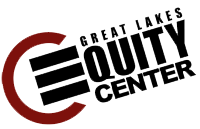Pursuing Inclusive Schools: The Case of Youth Researchers of Color Expanding a New Vision
This qualitative study examines how youth of Color with and without disabilities used youth participatory action research (YPAR) to advance a youth-centered conceptualization of inclusive education (IE). We examined data over the course of an academic year, which included weekly video recordings of whole-group and small-group interactions in the YPAR meetings, participant artifacts, youth and school adult interviews, and weekly adult researcher reflections. Using an interdisciplinary theoretical framework, we used inductive and deductive ethnographic approaches to code and categorize data. Findings indicate that both YPAR youth and school personnel contended with a lack of resources, but only youth identified relational tensions with their teachers. YPAR youth re-envisioned an action-oriented school with new teacher–student relationships, whereas school personnel wanted student voice but for academic rather than emancipatory outcomes. A youth research presentation functioned as a critical tool for personnel to re-envision equity through a youth-centered vision. The findings make the case for a participatory era of IE that centers the experiences of historically marginalized youth.Abstract
Contributor Notes
Author Bio
Taucia González, Ph.D., is an assistant professor of special education at the University of Arizona. Her research addresses issues of equity and inclusion for dual language learners with and without learning disabilities (LD). She is currently examining how youth participatory action research can be used as a social design experiment to support learning and advance equity for dual language learners with and without LD. The second strand of her research focuses on preparing teachers to work at the intersection of language and ability differences. Dr. González's work bridges general and special education and has been featured in journals such as the Journal of Multilingual Research and the European Journal of Special Needs Education. She currently serves as an advisory board member for New York University's Technical Assistance Center on Disproportionality. Dr. González has spent close to 20 years working in and with Latinx communities as an educator and educational researcher, which has been recognized by Chicanos por La Causa with the Esperanza award and by the University of Wisconsin-Madison with an Outstanding Woman of Color award. She currently teaches undergraduate and graduate courses that prepare future practitioners and researchers to create more inclusive educational systems across intersecting markers of difference.
Melanie Bertrand is an associate professor at Arizona State University. Her research explores the potential of student and community leadership to improve schools and challenge systemic racism and other forms of oppression in education. She applies cultural-historical activity theory to better understand how youth and community members engage in roles of activism, governance, and leadership within education. In addition, she is one of the organizers of the annual CRiA Youth Conference for Social Justice and Ethnic Studies, in which youth present their original research and artistic works.
Sarah Salinas, M.A., is a doctoral student and graduate research assistant in the education policy and evaluation program at Arizona State University. Her research is focused on inclusive and special education policy, teachers' policy implementation practices in schools and issues of equity and educational opportunities for dual language learners with learning disabilities (DLLsWLDs). She is currently examining how special education policy conceptualizes and outlines inclusive practices related to the least restrictive environment (LRE) and free and appropriate education (FAPE) for students with disabilities who are and are not dual language learners. The second strand of her research focuses on preparing and supporting pre-and-inservice teachers' learning, work, and collaboration related to how educators understand and work to engage with inclusive education policies in their daily teaching practices. Sarah's work bridges special education, educational policy studies, and teacher learning and has been featured in The Urban Review and Oxford Research Encyclopedia. She is currently a member of the editorial team for the Equity Alliance Blog and a member of the Sociocultural Research Group at Arizona State University.

